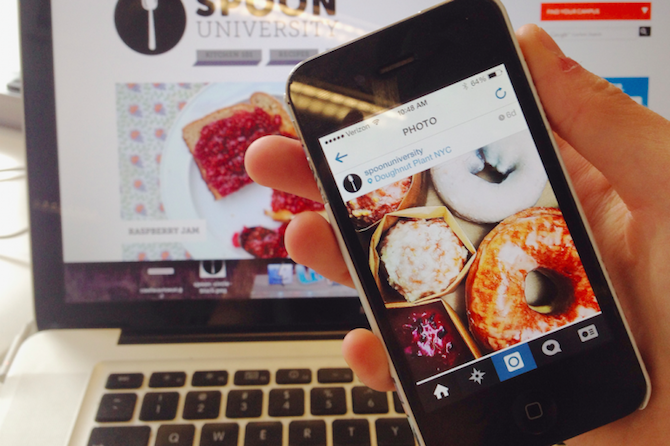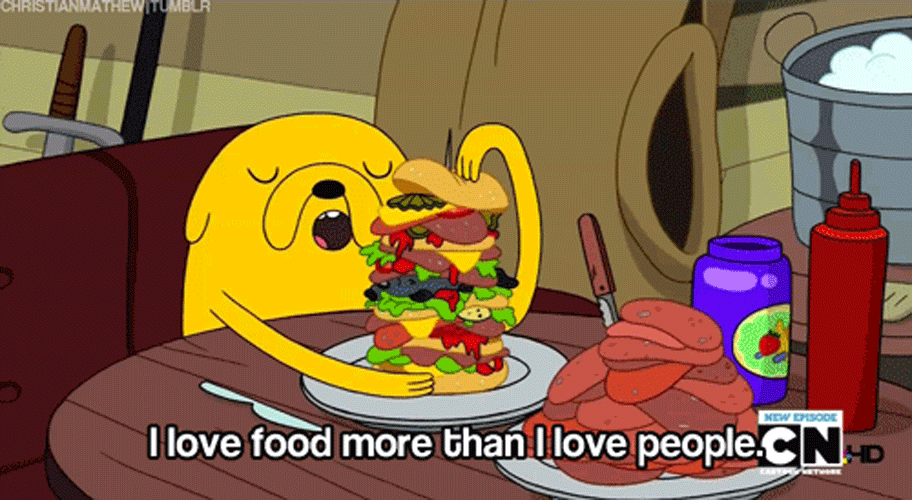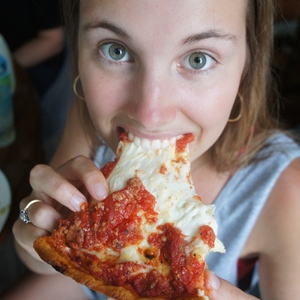I have always loved food. Soon after I began cooking and writing about food in earnest, my family and friends started calling me a “foodie.” While they did it with good intentions, I couldn’t identify with this title, because it has taken on the elitist context of the world of social media.
If you look up “foodie” in any basic online dictionary, they will all give you some version of “one who enjoys food.” By this definition, does the term apply to me? Absolutely.
But in our culture of hyper-publicized food consumption, with #foodporn Instagrams, blogs devoted to veganism or the Paleo diet, dozens of TV shows on food travel or chef battles, there is plenty of room for a word such as this to develop a brand new connotation. And it has.

Photo by Becky Hughes
Urban Dictionary may not be recognized as a true authority on the English language, but it does allow readers to see the way that many people actually use words (not the way Merriam-Webster tells us to use them). Plus it’s pretty funny.
I turned to Urban Dictionary to see how users interpret “foodie.” Here are excerpts from some of my personal favorites:
- “A person who enjoys eating food, unlike everyone else, who hates food, thinks it’s disgusting, and would never consider eating it.”
- “They’ll often claim to be ‘food enthusiasts’ or to have ‘refined tastes,’ but they’re usually lying.”
- “When someone takes a picture of their food and posts it online, for example on Instagram or Twitter.”
While these definitions mean to be humorous—or even rude—the individual they describe is clear: a social-media obsessed, self-proclaimed food expert who means to set themselves apart from everyone else. This is a problem.
When my family calls me a foodie, I’m not insulted because I know they didn’t research the term online and decide, “This would be a great way to push her buttons!”
But I could be. We paint the modern-day foodie as elitist, limited only to those with the means to prowl the city in search of the best cuisine, camera phone in hand. Food is an awesome thing. It’s a real shame that a title that should be worn proudly has become as stigmatized as the word “hipster.”
While eating out or eating organic can be expensive—especially for those of us on a college budget—you don’t need to be eating at 3-star restaurants to consider yourself a real lover of culinary culture.

Photo courtesy of firstwefeast.com
I am serious about food. My roommates and I may joke that all I talk about is popcorn, but I believe in what I do. Whether you’re a food photographer, a writer, or a nutritionist with a food blog, we have the ability to turn the nation’s attention toward the aspects of food that matter most.
Taking a picture of a brownie stacked on top of a cookie on top of peanut butter and Nutella-stuffed french toast and posting it on Instagram doesn’t automatically turn you into a food expert. That is something that takes a lifetime of devotion to the craft (which I cannot yet claim to have).
But the love and appreciation of food that drives us to these fields may be the key to a healthier, more educated population. The younger generation, people who create websites such as this one, move us in the right direction. It shows a passion for a very important field.
Unfortunately, the current term used to refer to members of this field isn’t one that we can wear proudly. And who is going to substitute in the other versions, like “gastronome” or “epicure”? That sounds like a Jane Austen novel.
Until the underlying context around this word changes, it pains me to say: please don’t call me a foodie.


